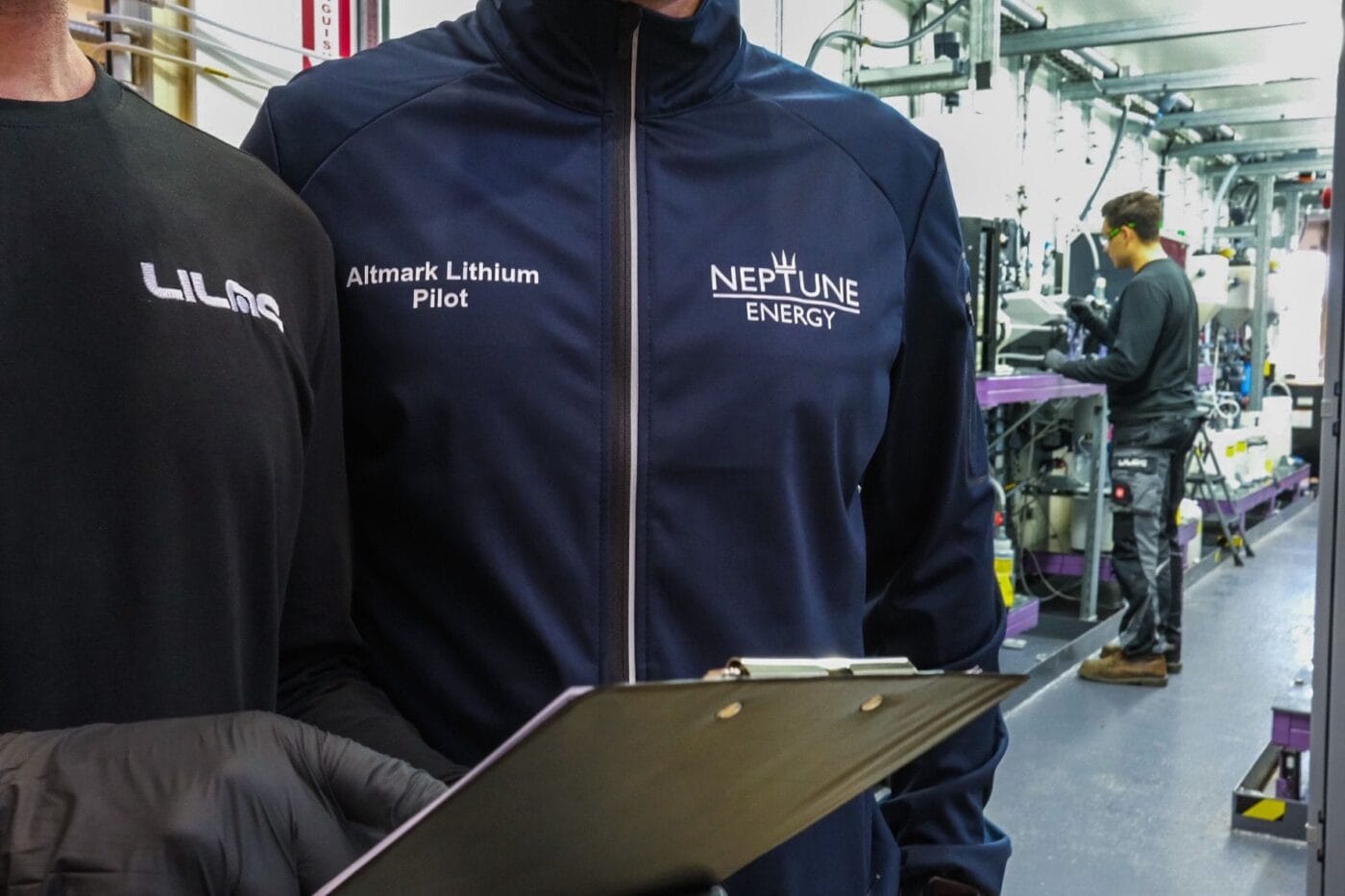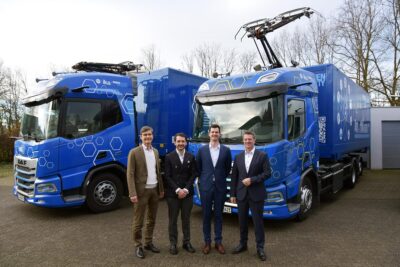Neptune Energy starts test run for lithium mining in the Altmark region
The pilot lithium extraction plant is located in the Steinitz district of the town of Salzwedel. Following approval from the State Office for Geology and Mining, the company will test various technologies for direct lithium extraction until the first quarter of 2026 as part of several pilot projects.
The thermal water will be used from existing natural gas wells in the Altmark region. The technology for the pilot project is being provided by the Californian company, Lilac Solutions, with a mobile container plant that processes the thermal water directly onsite. The resulting lithium chloride is made into a concentrate by Lilac Solutions in a field laboratory close by, and then treated and converted into battery-grade lithium carbonate in a plant.
Neptune Energy successfully extracted lithium from thermal water with the French technology company Geolith at the end of 2024. In cooperation with US-based engineering and construction firm KBR, lithium carbonate with a purity of 99.9 per cent was extracted from the Steinitz site for the first time, suitable for use in lithium-ion batteries.
“Through the different pilot projects, we are gaining valuable insights for further project development and identifying the most efficient technical solution for sustainable lithium production,” explains Andreas Scheck, Managing Director of Neptune Energy.
The aim is to establish commercial lithium mining in the region. According to expert estimates, the region has a deposit of around 70 million tons of lithium carbonate. Neptune Energy claims that commercial extraction of up to 25,000 tons of lithium carbonate per year would be possible. This is roughly enough to supply around 500,000 electric cars, for example, with battery material per year.
“The Altmark combines geological potential, established infrastructure, and technical expertise – ideal conditions to make Germany less dependent on expensive raw material imports. We will produce lithium in the Altmark to ensure a secure, domestic supply of critical raw materials,” emphasises Axel Wenke, Director of New Energy at Neptune Energy.
Neptune Energy already operates the Altmark gas field and also produces gas and oil in various other regions throughout Germany. Neptune’s lithium project has already encountered local resistance. MDR, the public broadcaster for the federal states of Thuringia, Saxony and Saxony-Anhalt, writes that more than 22,000 people have signed an online petition against lithium mining in the Altmark and the neighbouring Lüneburg Heath since the plans were announced in April last year.
According to MDR, the citizens’ initiative Clean Environment Altmark, for example, is demanding that Neptune Energy first remove the contamination from a toxic pit near Kalbe, another site operated by the company in Saxony-Anhalt. This production site leaves behind a radioactive pit contaminated with mercury and arsenic, which should have been excavated long ago, as decreed by the state government, which passed a resolution to this effect. Neptune Energy is not complying with the demand because it says there are no disposal routes
Neptune was acquired by Italy’s largest oil company, Eni, in January 2024. Eni has been involved in car sharing and electric car charging investments as well as facing criticism from environmental and civil society groups for both its global emissions and accusations of corruption. Neptune itself began as a UK-based oil and gas extraction company with shareholders from the USA and China, namely the state-owned China Investment Corporation and the private US equity companies Carlyle Group and CVC Capital Partners.
Germany, home to several of the world’s largest automotive companies, has been approaching the security of supply of critical raw materials with strategies that include battery recycling and mining raw materials locally. The middle European country holds three known lithium deposits, one of which is the above-mentioned Altmark region, the others are in the Ore Mountains, where the project company Zinnwald Lithium plans to start mining in 2030, and the Upper Rhine Graben, where Lithium Energy is active.
neptuneenergy.de, mdr.de (in German)





0 Comments